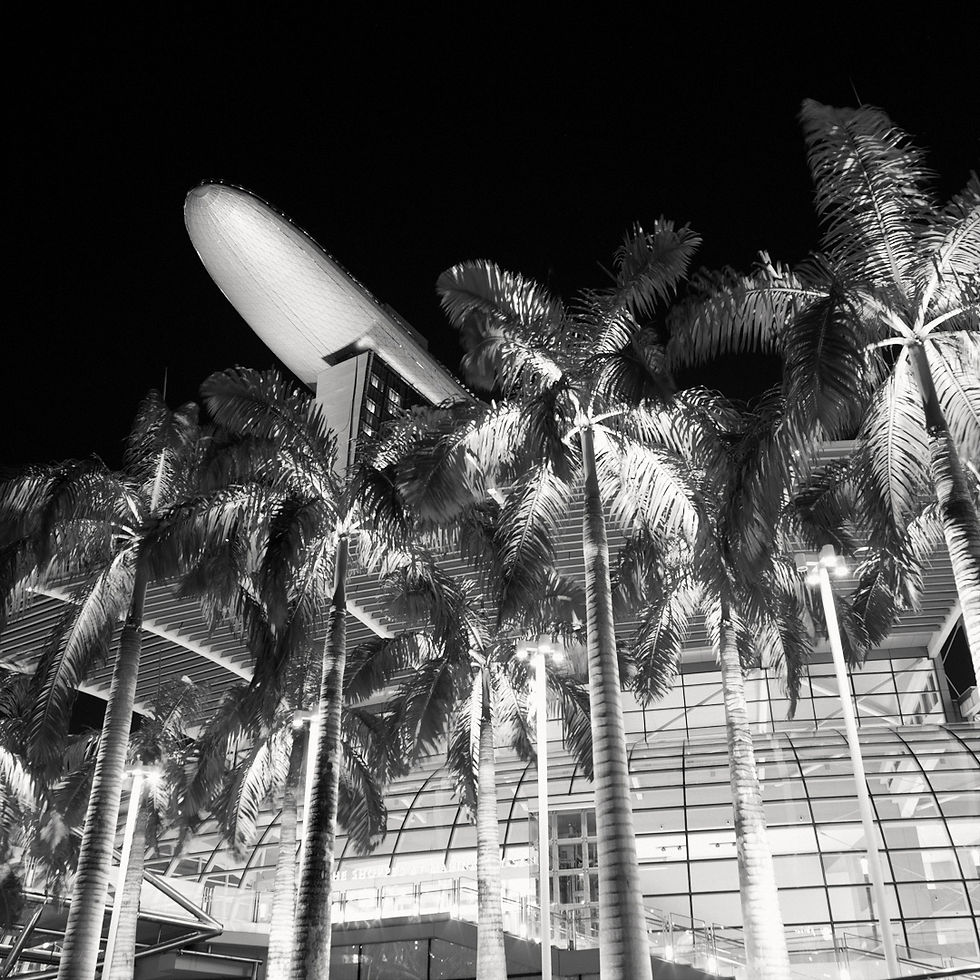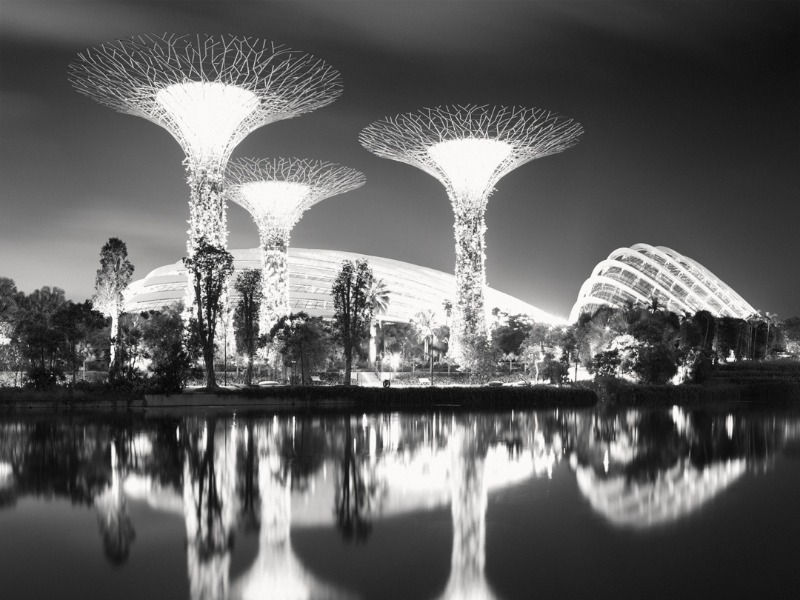Singapore: The Marina Bay Sands, an Impact Beyond the Landscape
- Olivier

- Jul 4, 2016
- 4 min read
Updated: Oct 9, 2024
Without a doubt, the Marina Bay Sands is a large-scale project that has had a significant impact on Singapore's cultural, economic, and environmental landscape. Not to mention its undeniable architectural and photographic interest. But what is it made up of?

Construction and Design
The Marina Bay Sands is a hotel and entertainment complex located in Singapore's Marina Bay area. It was designed by architect Moshe Safdie and constructed by the Las Vegas Sands group, led by Sheldon Adelson. Construction began in 2007 and was completed in 2010, at an estimated cost of $5.7 billion USD.
Objectives
The project aimed to boost tourism and bring significant economic revenue to Singapore. It was also intended to add a new dimension to the city's architectural landscape by introducing a globally recognizable emblem.
Main Features
The complex consists of three hotel towers, each standing 55 stories tall with a total height of 200 meters. Additionally, it features a casino, a shopping mall, a lotus-shaped museum known as the ArtScience Museum, and a leisure park. One of its most iconic features is the 150-meter-long rooftop infinity pool, the largest of its kind in the world, offering panoramic views of the city. This pool is part of what is known as the SkyPark, which itself measures 340 meters in length and 40 meters in width.

The hotel complex has 2561 rooms and suites, making it one of the largest hotels in Singapore in terms of capacity. Beyond the residential elements, Marina Bay Sands also includes a 15000 m2 casino, a 74000 m2 shopping mall, and a 120000 m2 convention and exhibition space.
The ArtScience Museum is another distinctive feature of the complex nearby. It has a total floor area of 6000 m2 and is designed in the shape of a lotus flower. I will return in a future article to this other major construction in Singapore's Marina.
Impact on the Marina
The construction of the Marina Bay Sands has transformed the Marina into a focal point for both tourists and locals. Visitor numbers to this area have seen a significant rise, with approximately 1.5 million visitors per month. The aquatic ecosystem was also considered during construction, with efforts made to minimize environmental impacts.

Before the hotel's construction, the main attraction at the Marina was the view from the exact spot where the hotel now stands. Since its construction, the focus has shifted to Marina Bay Sands, reversing the direction of landscape interest. Nowadays, tourists prefer to observe the Marina from the opposite bank, something that hasn't gone unnoticed by local businesses.
As a result, the number of restaurants and cafes on the opposite shore has skyrocketed, making it a modern custom to admire this architectural work while sipping a coffee or having an aperitif.
Economic Consequences
Marina Bay Sands has had a massive economic impact, generating billions of dollars in tourist revenue and creating thousands of jobs. According to some estimates, the complex contributes about 1.5% to Singapore's GDP.
Undoubtedly, this hotel complex has a universal appeal. Whether one is a photographer, an art enthusiast, or an architecture aficionado (or perhaps all three), Marina Bay Sands is a must-see construction if you find yourself in the region, even if only in transit to another destination.

As for me, having stayed in Singapore multiple times, each visit offers a rediscovery through the lens. The complex is both fascinating and majestic. And no, I've never chosen to spend the night there. I much prefer to admire it from the Marina and stay in other equally surprising neighborhoods of the city.
The Final Word
The Marina Bay Sands stands as a testament to human ambition, transforming Singapore's skyline into a visual symphony of modernity and luxury. Yet, its impact stretches beyond its architectural prowess, challenging us to ponder the relationship between development and the natural landscape.
As this iconic structure dominates the horizon, it prompts a reflection on the balance between progress and preservation. Marina Bay Sands symbolizes the potential for harmony between human creativity and environmental consciousness, urging us to envision a future where innovation enhances rather than eclipses the natural beauty.
It serves as a reminder that in our quest to reach the skies, we must remain grounded in our responsibility to the earth, ensuring that our legacies are not just monuments of achievement, but beacons of sustainability.











